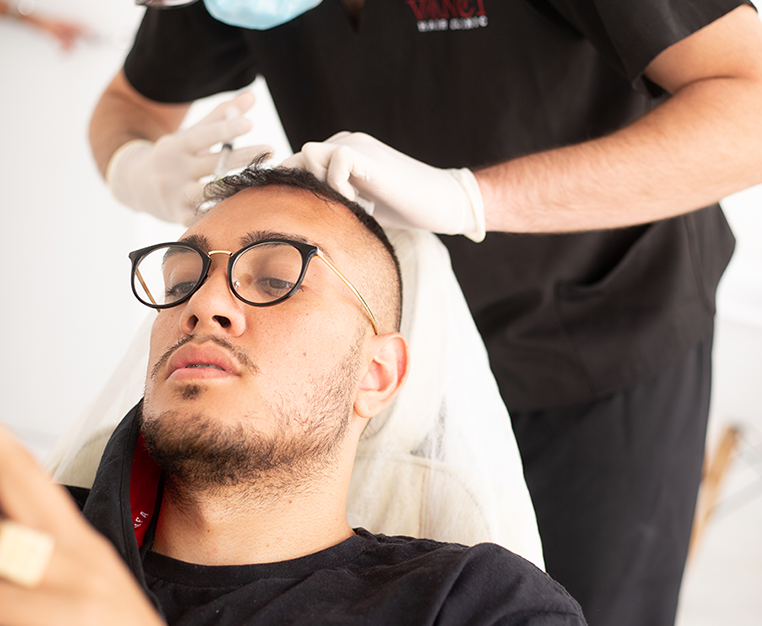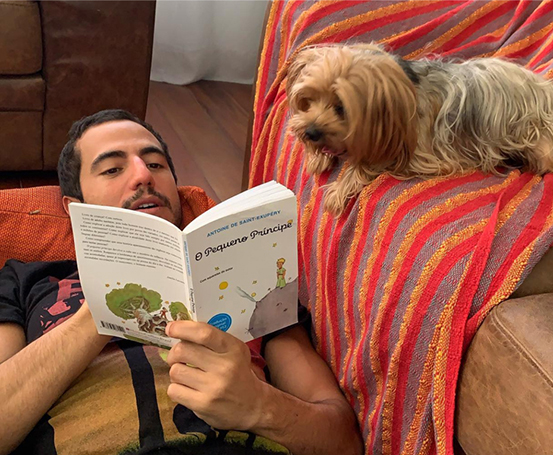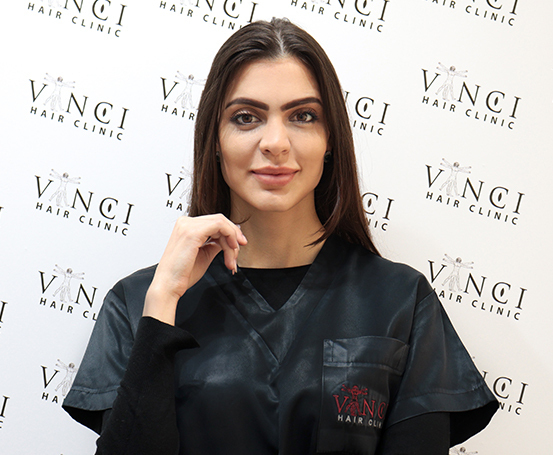Let’s start with a fairly uncontentious statement: Covid-19 has caused an increase in the number of people presenting with hair loss at clinics around the world. Few of those working in the hair restoration business would argue with that. Nor would most of the general public, if one can judge by the number of articles and forum threads that have covered the topic in recent months. But we’re now a couple of years on from the lockdown, and Covid-19 had largely faded from the news bulletins. So, is post-Covid hair loss still a thing or has that, too, disappeared from our lives?
Is My Hair Loss Linked to Covid-19?
First of all, it’s important to understand that hair loss is a complex issue that can have a variety of causes. Genetics, hormonal changes, stress, poor nutrition and medical conditions can all contribute to hair loss. However, Covid-19 seems to have added a new dimension to the problem. And it’s not just regular folks who are experiencing hair loss. Celebrities like Alyssa Milano and Drake have opened up about their struggles with post-Covid hair loss. Milano even went so far as to say that she’s lost “probably a third” of her hair since recovering from Covid-19.
If you have tested positive for the virus in recent months, therefore, and have noticed an increase in hair fall, there is a good chance that the two things are linked. There are various theories as to why we lose our strands after having had the virus. One is that Covid-19 can cause inflammation, which can lead to hair loss.
The most plausible theory to explain post-Covid hair loss, however, is that it triggers a type of hair shedding known as telogen effluvium (TE). TE describes the stage of the hair growth cycle when your strands are in the resting or shedding phase. What seems to happen is that sudden trauma or stress pushes a greater proportion of your hair into the TE stage. Significant life events such as bereavement or illness are certainly capable of doing that.
Current Situation
It’s difficult to get an accurate picture of where we are right now with post-Covid hair loss. Gathering data from clinics and translating it into trends takes time, so figures put out by bodies like the International Society of Hair Restoration Surgery usually run about a year behind. However, media coverage of the condition has not let up, which suggests that the problem hasn’t gone away.
While the virus has been curtailed by vaccination programmes around the world, it has by no means been extinguished. The most recent figures for the UK, for example, show that millions of people are still testing positive for the virus, while infection rates remain high in some geographical areas and some age groups of the population. That being the case, it’s unlikely that rates of post-Covid hair loss have dropped.
Lifestyle Changes
While a bout of post-Covid hair loss can be a shocking experience, the only comfort is that the hair shedding it causes is usually temporary; your hair will grow back after a few months. In the meantime, making a few changes to your lifestyle may speed the process up or, at least, help you avoid making matters worse.
So, things like eating a well-balanced diet rich in vitamins and minerals is important for overall health and may also help support healthy hair growth. Make sure to eat plenty of fruits, vegetables, whole grains, lean proteins and healthy fats. Drinking plenty of water will keep your scalp and hair healthy while getting enough sleep can help reduce stress. Techniques like meditation, yoga, or deep breathing will also help you relax and keep stress at a manageable level.
A few changes in your haircare habits can also help. Avoid using harsh hair dyes or treatments on your hair, as these may damage your hair and scalp. Try to reduce your dependency on hot styling tools like hair dryers, straighteners, or curling irons, as they can make hair dry, brittle and more prone to breakage. If you can’t live without them, at least turn the heat setting down a notch or two.
Conclusion
If you’re worried about post-Covid hair loss or the state of your hair generally, don’t waste weeks, months or even years fretting about it. Take positive action by speaking to a hair specialist. Hair loss is treated most effectively when it’s caught at an early stage, so don’t squander precious time.
Vinci Hair Clinic can help when it comes to specialists. We are world leaders in the hair restoration business, with a network of clinics across the globe. We offer a free, no-obligation consultation to all our new clients. It can take place in one of our clinics or, if it suits you better, over the phone using photographs. All you have to do is get in touch and book an appointment!



